

Overwhelming is an easy - and appropriate - word to use for CD Projekt's action-RPG which releases tomorrow. It's a huge game and there's little in the way of hand-holding. Given that, we've drummed up a few tips for you inaugural trip into the wilds. These aren't aren't detailing where you can find certain secret items (exploration's part of the game's enjoyment) but rather general advice based on our time riding through the war-torn countryside.
1. Take Your Time...
Make no mistake: Wild Hunt's world is fricking huge. 100 hours is right on the money if you want to explore every corner, complete every quest, conquer the card game Gwent (and win all its special cards) and get yourself fully upgraded. This is a game to be savoured, not rushed. Leave that 25 hour speed run to the second play through. You just spent near fifty quid on a game: get immersed.
2. ...because personal connection is everything.
But there's another reason, and that's the personal connection to quest lines. CD Projekt has put a lot of time into giving every character depth, and making quests interesting. You'll find most of the main ones posted up on town billboards. read a notice, and you'll unlock that quest. However, race between towns and quickly stockpile notices and you'll soon have the fantasy equivalent of a monthly shopping list; a long line of things you need to do, but no real memory of why you needed them in the first place. And where's the fun in that?
3. Horsey see, horsey do.
The world's riddled with well-worn traveller paths between towns. Saddle up and start riding along any, and your horse will automatically follow the route in front of its nose. It gives you time to enjoy the scenery and spot interesting areas ahead without the need to keep your steed pointed in the right direction. If you hit a crossroads, you only need to nudge the control stick in your wanted direction for Roach to carry on where you want him to go.
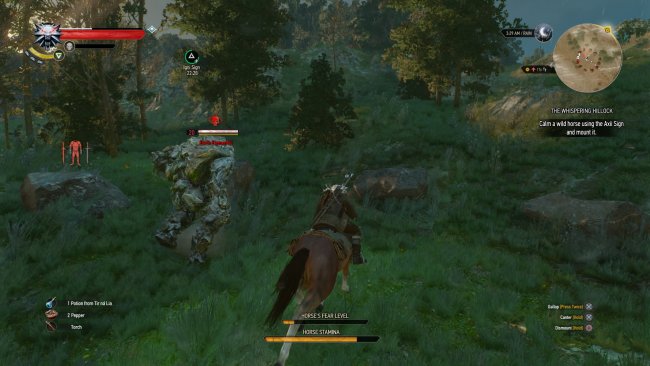
4. Going off the Map
Keeping to paths is the relatively safe route across the wilderness. Wolves will rarely stray near, and by the time bandits spot you you'll have rode by. If you are unfortunate to get ambushed, there's a chance local soldiers may march by and help you out. For convenience, discovered signposts allow you to fast travel between them.
But stick to either and you miss the deadly beauty of Wild Hunt. When you've a destination icon on your mini-map, take the direct route - off the paths. You'll encounter any number of beasts, small clashes, situations and mysteries that litter the countryside, earning XP and discovering items on the way.
5.Blind or guided?
This one's personal preference. A lot of the world's secrets are just sitting there to be stumbled upon. You don't need to activate a quest line to come across a murder mystery, or s magician's destroyed mansion. However, if you do check out town notice boards, read posts will highlight question marks to your map, letting you know where there's something of interest. It's best to do a little bit of both. We came across a massacre committed by a Noonwraith, but found out there was a contract out on killing it when we entered town. Some jobs are only worth doing if you're getting paid.
6. Hints Off
Tied to the previous is the HUD, which you can customise (find the option in the pause save/load menu) to lose the heavier hand-holding icons. Breadcrumb trails leading you directly to the right point invalidate the need to search areas to hunt down clues. Toggle this option off and treat it instead as an additional hint system if you're really stuck. Otherwise? Enjoy the exploration and use your eyes. There's a reason why NPCs describe visual markers to orientate yourself by when exploring.
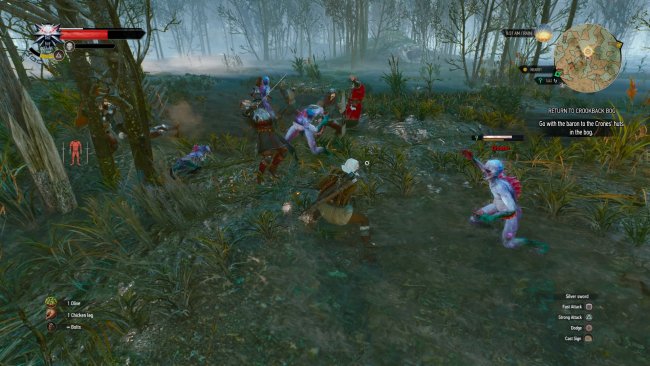
7. Learn your limits.
Witcher 3 isn't built for you to complete everything there is to do in one region before moving on. Some contracts and quest lines are far beyond your current XP level, and trying to complete them is suicide. The quest menu allows you to easily tab through collected and incomplete contracts. Make a point of rechecking it once you've levelled up a bit. That tantalising Witcher contract that seemed out of your depth before? You have a fighting chance now...
8. Damaged doesn't mean Death
On-screen icons will flag when armour is damaged, or weapons degraded. This doesn't mean you're defenceless however, just that attacks deal less damage, and any hit you take is going to hurt more. You can kill enemies, it'll just take longer, and you have to make sure to dodge every swing in your direction.
While you can get items repaired by blacksmiths, it's worth picking up a repair kit so you can mend on the move. Valuable when you're neck-deep in a quest. Look, you wouldn't try and ride a bike up a mountain without a puncture repair kit, would you?
9. Good, honest food
You can link items to the up and down of the D-Pad. These can be potions - and given their quick and generous healing traits, its better for you if they are - but early on when you're still lacking ingredients, just stick normal, wholesome food here. There's no eating animation, so you can feel the benefits immediately if you need to heal up during a prolonged fight. Just make sure to back off to give the food time to do its work.
10. Meditate
Hit the menu button, scroll right, select meditation. You can do so anywhere outside of battle, and it'll instantly heal you fully (no need to waste food) and restore potions, provided you've the ingredients. It's also how you can cycle through different times of the day and night. Important if you've to meet - or fight - someone at a particular time.
11. Learn your enemies and be inventive
The Bestiary does a good job in adding to the lore behind the creatures you'll face, and tells you which potions and Signs they're vulnerable to. But you also need to get your nose out of the book and learn in the real (virtual) world. Enemy types have different attack patterns, while different species will react differently when working as a group. You need to learn the tell-tale sign of when a bear's about to charge, and how many dodge rolls are needed to get out of its way. Learning how to deal with a pack of wolves, who'll circle and attack from all angles, is important. As is prioritising the biggest threat in a group of bandits (hint - it's the bowman). But there's no correct way in downing threats successfully - learn what works for you.


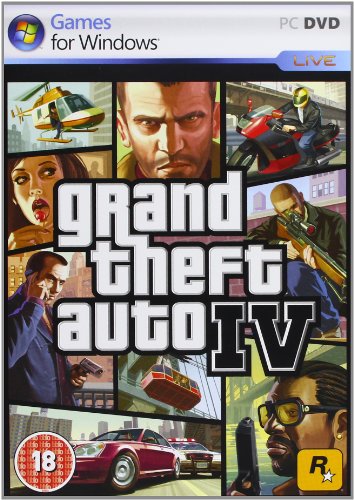
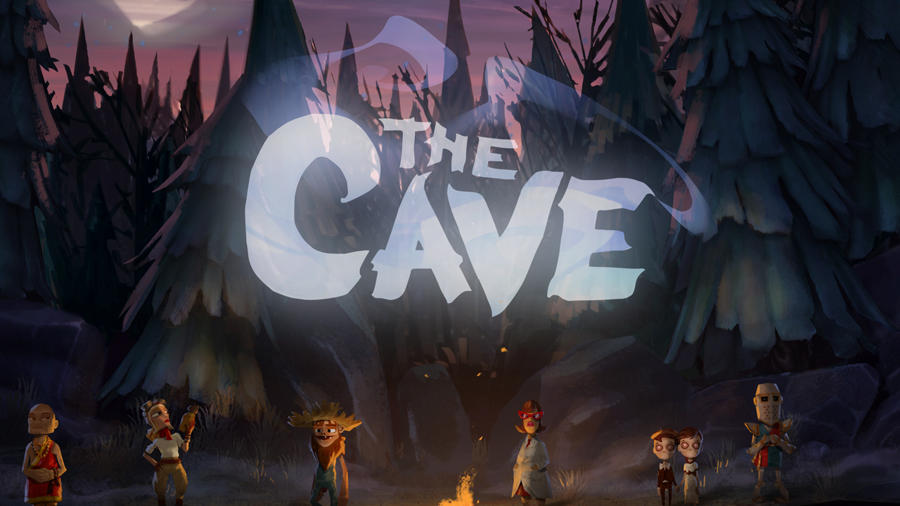
 Sleeping Dogs Fast and Hot Sandra Mission Walkthrough - GamersHeroes
Sleeping Dogs Fast and Hot Sandra Mission Walkthrough - GamersHeroes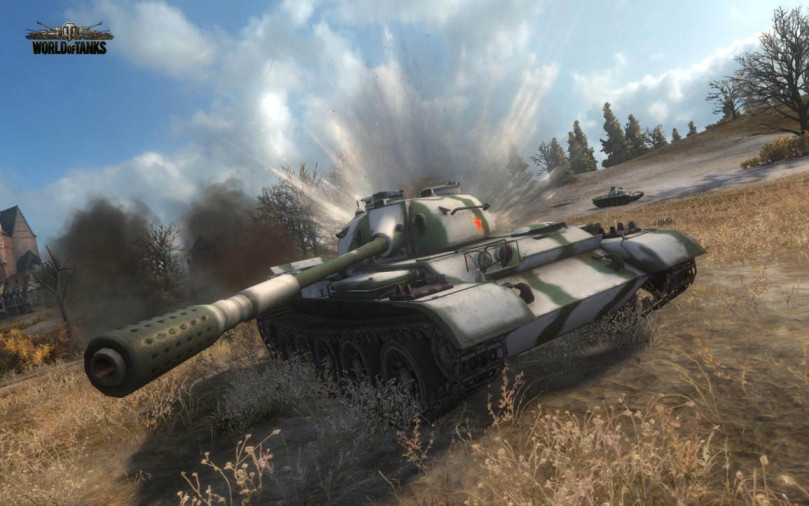 World of Tanks Weak Spots Guide
World of Tanks Weak Spots Guide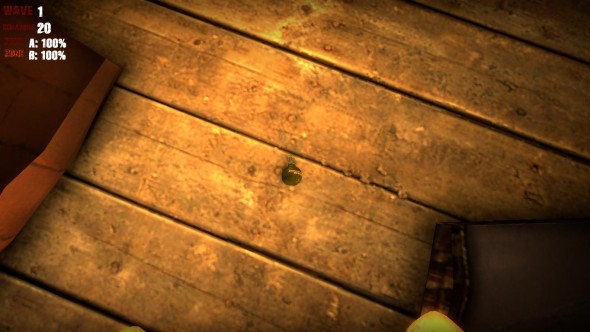 No More Room in Hell: Everything Else Guide - AlterGamer
No More Room in Hell: Everything Else Guide - AlterGamer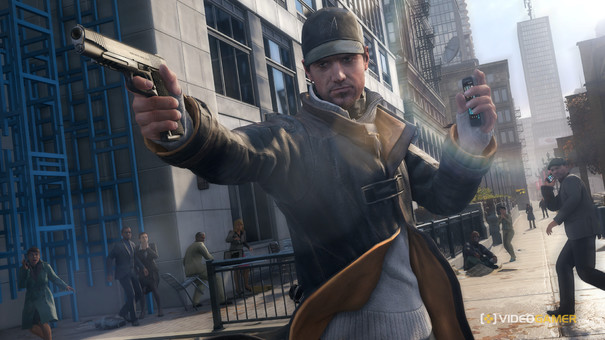 Watch Dogs 2: The true beginning for the series?
Watch Dogs 2: The true beginning for the series?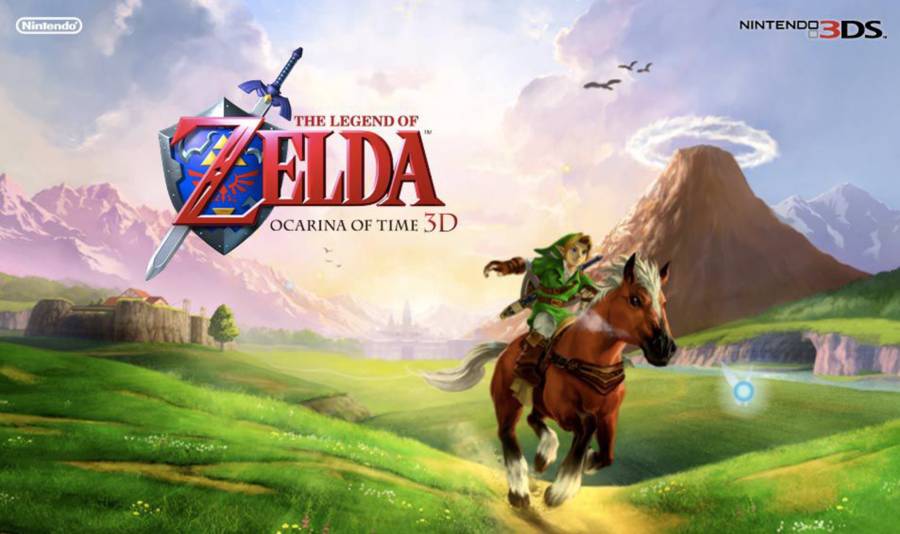 Zelda OoT 3D Barinade Boss Guide
Zelda OoT 3D Barinade Boss Guide